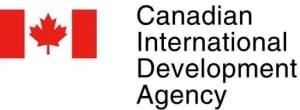SEAN BOOTS
News Writer
 In developing countries around the world, citizens living in poverty possess more than $300 billion in assets that aren’t legally registered — sums that dwarf the international aid and remittances being sent from richer countries.
In developing countries around the world, citizens living in poverty possess more than $300 billion in assets that aren’t legally registered — sums that dwarf the international aid and remittances being sent from richer countries.
Naresh Singh explained this difficult reality at a presentation Jan. 17 in Convocation Hall.
Singh, the strategic director of the Canadian International Development Agency, spoke about his work with the United Nations’ Commission on the Legal Empowerment of the Poor, and its recently-published report, “Making the Law Work for Everyone.”
His presentation detailed the challenges that citizens of many developing countries face because of limited access to legal resources.
In India, Singh noted, there are only 11 judges for every million people, while in Egypt it takes more than a year and almost a dozen sets of laws to register a bakery.
In Sub-Saharan Africa, 50 million babies are not legally registered at birth.
All of these legal conundrums limit the opportunities of citizens of these countries, who cannot succeed in formal business, maintain their personal rights, or appeal wrongs committed against them.
In response, the UN Commission called for improved access for the poor to formal economies, partly by registering the existing $300 billion in unregulated assets in a “carefully orchestrated” way.
It also calls, Singh continued, for improved legal recourse among the poor to ensure access to lawyers, judges and legal information.
Singh claimed this would also give the poor a voice and the capacity to stand up against entrenched political structures.
The Jan. 17 event also included presentations by Carmen Wiebe and Maron Johnston, who wrote critical essays examining the Commission’s report for a senior political studies class.
Wiebe suggested that past efforts to formalize workers in the informal sector have simply made them more marginalized.
Johnston spoke of the challenges of implementing the Commission’s concepts of legal reform, especially given the political environment of many former colonial nations.
Governments in many of these countries are still modelled after previous authoritarian colonial governments, rather than Western-style democracies. Johnston insisted that the Commission’s vision was utopian and unlikely to succeed against entrenched political powers.
Singh replied that rather than trying to formalize people into the existing, limited economy in developing countries, the Commission wants to see people integrated into a formal economy “that actually works for them.”
He acknowledged, however, that implementing pro-poor legal reforms in elite-dominated societies posed a major challenge to the Commission.
“Unless we do this,” Singh concluded, “donor agencies like CIDA will be there forever, addressing the symptoms of poverty and not the structural causes.”